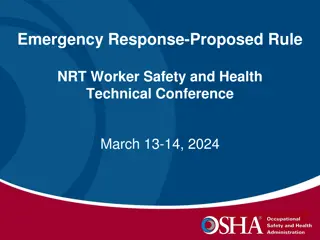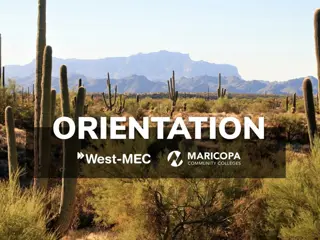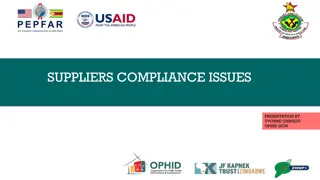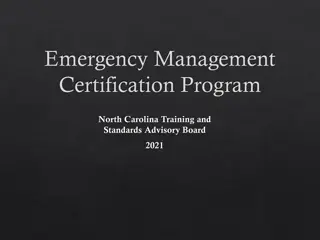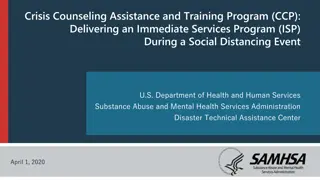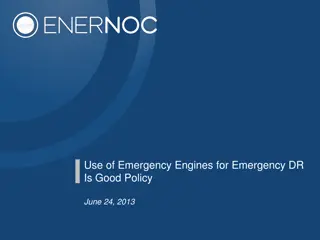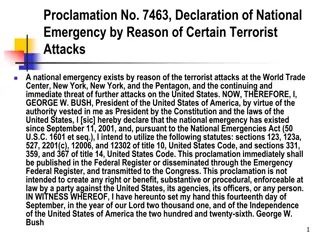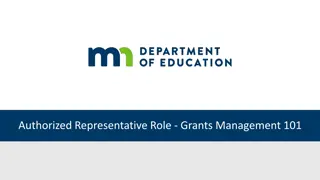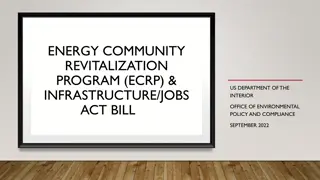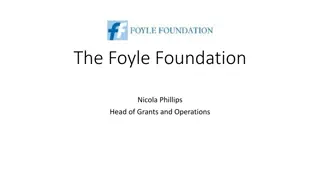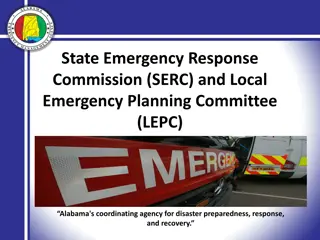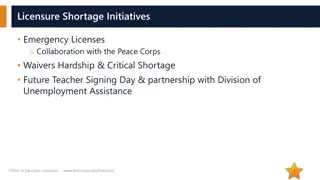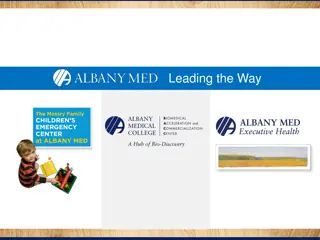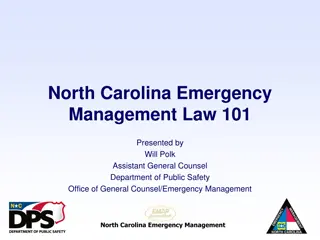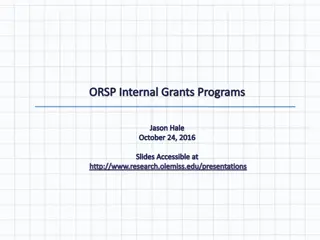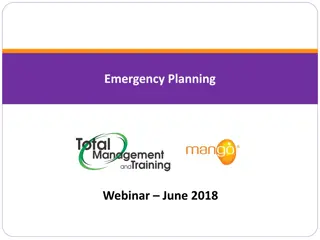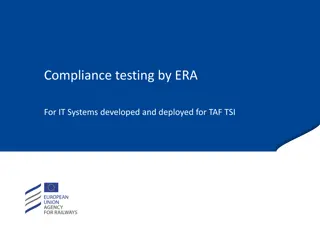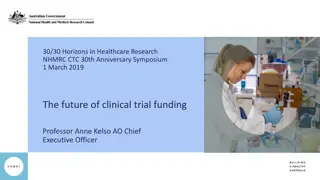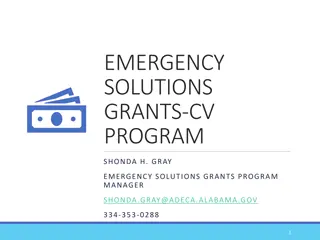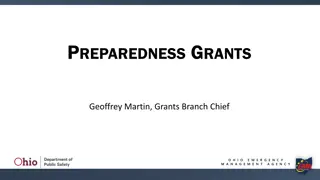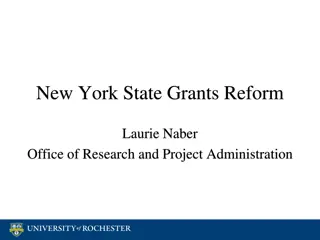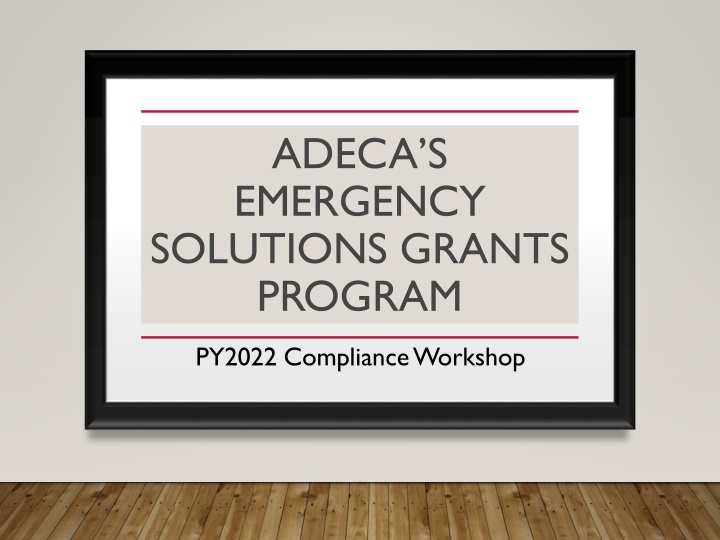
ADECAS Emergency Solutions Grants Program Compliance Workshop
Within this workshop, ADECAS outlines various compliance requirements for the Emergency Solutions Grants Program in Alabama. Key topics covered range from contacting the Community and Economic Development Division to certification procedures and documentation submissions.
Download Presentation

Please find below an Image/Link to download the presentation.
The content on the website is provided AS IS for your information and personal use only. It may not be sold, licensed, or shared on other websites without obtaining consent from the author. If you encounter any issues during the download, it is possible that the publisher has removed the file from their server.
You are allowed to download the files provided on this website for personal or commercial use, subject to the condition that they are used lawfully. All files are the property of their respective owners.
The content on the website is provided AS IS for your information and personal use only. It may not be sold, licensed, or shared on other websites without obtaining consent from the author.
E N D
Presentation Transcript
ADECAS EMERGENCY SOLUTIONS GRANTS PROGRAM PY2022 Compliance Workshop
CONTACT INFORMATION Community and Economic Development Division Kathleen Rasmussen, Division Chief kathleen.rasmussen@adeca.alabama.gov 334-353-0323 Trent Williams, Special Programs Unit Chief trent.williams@adeca.alabama.gov 334-353-3409
CONTACT INFORMATION Dave Veatch, ESG Program Manager dave.veatch@adeca.alabama.gov 334-353-0288 Marie Anderson, ESG Program Specialist marie.anderson@adeca.alabama.gov 334-242-0398 Joy Smith, ESG Program Specialist Joy.smith@adeca.alabama.gov 334-242-5384
ADECAS ESGWEB PAGE www.adeca.alabama.gov Scroll over Divisions (top right) Click Community and Economic Development Click Emergency Solutions Grant (left side)
LETTER OF CONDITIONAL COMMITMENT DOCUMENTS
Budget Forms List of Second-tier Subrecipients Subrecipient Administration Certification Form
Form W-9 Program Correspondence Environmental Forms State of Alabama Disclosure Statement Form
Copy of deeds, mortgages, and appraisals Certification of Local Government Approval must be signed by the chief elected official of the local unit of gov t Certification of building use Schedule of expenditures
Certificate of Compliance with the Beason-Hammon Act Copy of E-Verify Memorandum of Understanding Certifications by the Chief Executive Officer or the Authorized Official
Written Standards/Policies and Procedures Certification of Compliance with the Conflicts of Interest Policy Certification of Compliance with the Confidentiality Policy Current SAM.gov registration
Copy of CoCs Coordinated Assessment Procedures Certification of Election to Charge 10% Federal De Minimis Indirect Cost Rate
CENTRALIZED/COORDINATED ASSESSMENT SYSTEM (CAS) Should include information on how to seek assistance from each ESG service provider Must be used by each ESG service provider Should decrease wait time to receive ESG assistance Case managers should be knowledgeable of all local service providers even if they aren t a part of the CAS
E-VERIFY (FOR NONPROFIT SUBRECIPIENTS ONLY) Must be enrolled in the E-Verify program maintained by the U.S. Dept. of Homeland Security. *Only required if agency has one or more paid employees submit entire MOU. Enrollment is available at: (http://immigration.alabama.gov)
POLICIES & PROCEDURES
Eligibility Coordination of services Determining and Prioritizing which eligible families and individuals will receive HP or RR.
Length of time assistance will be provided How the amount of assistance will be adjusted over time Program participants share in costs (rent/utilities), if any Type, amount, and duration of housing stabilization and relocation services to be provided Targeting/providing essential services related to street outreach
Admission, diversion, referral, and discharge by emergency shelters assisted under ESG Length of stay Safety and shelter needs of special populations Persons/families with the highest barriers to housing and are likely to be homeless the longest
Process for assessing, prioritizing, and reassessing program participants needs for essential services related to emergency shelter Policy against involuntary family separation for emergency shelter providers Access to the ESG program for persons of limited English proficiency Terminating assistance grievance procedures
Language that supports fair housing practices Written non-discrimination and Equal Opportunity Policy Language that addresses equal access to HUD- assisted or insured housing regardless of sexual orientation, gender identity, or marital status Language that prohibits inquiries on sexual orientation or gender identity for the purpose of determining eligibility of assistance Policy regarding conflicts of interest Policy regarding confidentiality of information Drug-Free Workplace Policy
PROCUREMENT Informal Methods
MICRO-PURCHASE PROCEDURES Acquisition of supplies or services when the aggregate dollar amount does not exceed the micro-purchase threshold ($3,000) Do not require competitive quotes if the price is reasonable Should be distributed equitably among qualified suppliers
SMALL PURCHASE PROCEDURES Purchases that do not exceed the Simplified Acquisition Threshold ($150,000) Obtain price/rate quotes from an adequate number of suppliers Rate quotes available on our website Solicit quotes from ADECA s Office of Minority Business Enterprise PMU-1 form must be completed and submitted to ADECA for single items over $5,000
PROCUREMENT Formal Methods
SEALED BIDS Must be solicited from an adequate number of qualified sources Invitation for bids must be publicly advertised Invitation includes specifications Bids opened publicly Requires a firm fixed price contract May utilize ADECA s Office of Minority Business Enterprise
PROPOSALS Request for proposals must be publicized and identify all evaluation factors Proposals must be solicited from an adequate number of sources Requires a written method for evaluation and selection
PROPOSALS Contracts must be awarded to the responsible firm whose proposal is most advantageous to the program considering price and other factors May be used for qualifications-based procurement of architectural/engineering professional services
PROCUREMENT Non-competitive
NONCOMPETITIVE PROPOSALS Item or service is only available from a single source Urgent public need or emergency will not allow for a delay caused by advertising Awarding agency authorizes a noncompetitive process After solicitation of a number of sources, competition is determined inadequate
SUPPORTING DOCUMENTATION Invoice Documentation Cover Sheets Summary Sheet of individual expenditures for each agency, listing: Vendor Date Total invoice amount Clearly delineate which expenditures are ESG or Match, and which expenditures are to be applied to which Program Activity (Admin, ES, SO, HMIS, HP, RR)Invoice Documentation Cover Sheets
SUPPORTING DOCUMENTATION Copies of: Bills Invoices Contract/Agreement for Rental Assistance signed by both client and landlord Receipts or bank statements showing payments made
SUPPORTING DOCUMENTATION Timesheets showing actual time worked Payroll to show wage/salary Summary of duties/activities performed Paystub or bank statements showing payments made
SUPPORTING DOCUMENTATION Program income (returned deposits/fees for service, if applicable) Prevention/Re-housing Documentation Checklist and supporting documents
REQUEST FOR REIMBURSEMENT Submit at least once per quarter, but no more than once per month (monthly preferred) Can request an advance in anticipation of expenses Should only request amount needed for expenditures All advance funds must be spent within 30 days of deposit of the check from ADECA Any unspent funds must be returned
REQUEST FOR REIMBURSEMENT Address on Request for Payment, Certification Form, and in STAARS Vendor Payment System must be identical STAARS info: https://comptroller.alabama.gov/ Signature on invoices and budgets must be identical to those on the Certification Form Local unit of government subrecipients must pay second-tier subrecipients within 30 days of receipt of a completed reimbursement request
Subject to the same regulations and restrictions as the ESG funds Must be eligible under the ESG program Must be eligible for the ESG activity for which it is being used Must have occurred within the Grant period of performance
Can be obtained from any local, state, federal, or private source, except ESG Other program regulations must not prohibit those funds from being used as match for ESG If ESG is being used as match for another program, funding from that program cannot be used as match for ESG Program income, if applicable, must be used as match
Services provided by individuals are valued at rates consistent with those ordinarily paid for similar work in the organization or by other local employers If there are no similar rates, use the Federal minimum wage; do not use rates published by the Independent Sector. Must be documented.
The value of any donated real property or equipment may be used as Match Must use Fair Market value Must be evidenced by a recorded deed or use restriction effective for at least 10 years after the donation date. Property owned by the subrecipient may not be used as Match
Federally Negotiated Plan In accordance with 2 CFR Part 200 Must submit copy of proposal to ADECA 10% de minimis certification required
Indirect Costs + Direct Costs = Total Costs Total Costs must still be within total amount budgeted for that activity
Lead-based paint regulations Building is structurally sound Energy Star and WaterSense products and appliances (for rehab or conversion projects) Accessibility Adequate space and security Interior air quality Water supply
Sanitary facilities Thermal environment Illumination and electricity Food preparation Sanitary conditions Fire safety
HOMELESSNESS PREVENTION AND RAPID RE-HOUSING
Participants must be assisted, as needed, in obtaining: Supportive Services essential for independent living. Mainstream Benefits like Medicaid, Supplemental Security Income, or TANF
CASE MANAGEMENT Participants are required to meet with case managers monthly (unless prohibited by laws regarding domestic violence issues) Case manager must develop a housing stability plan to assist participants in retaining permanent housing after assistance ends
ELIGIBILITY HOMELESSNESS PREVENTION Meet criteria of at-risk of homelessness, categories 1, 2, or 3 or criteria of homeless definition categories 2, 3, or 4 Annual income below 30% of AMI at program entry Annual income is based on CFR guidelines Lacks support networks and financial resources to remain in housing Re-evaluation at least once every 3 months

